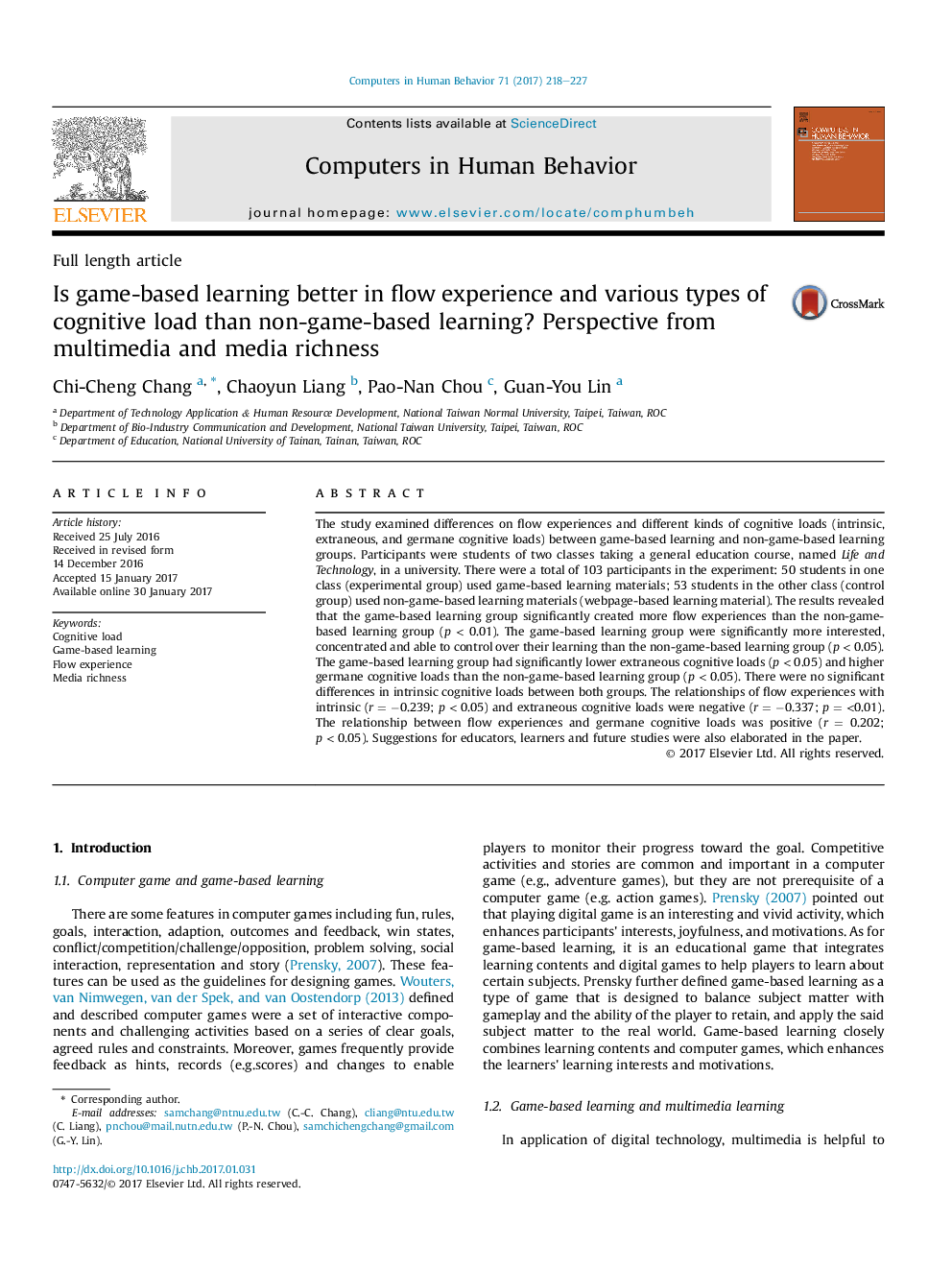| Article ID | Journal | Published Year | Pages | File Type |
|---|---|---|---|---|
| 4937357 | Computers in Human Behavior | 2017 | 10 Pages |
Abstract
The study examined differences on flow experiences and different kinds of cognitive loads (intrinsic, extraneous, and germane cognitive loads) between game-based learning and non-game-based learning groups. Participants were students of two classes taking a general education course, named Life and Technology, in a university. There were a total of 103 participants in the experiment: 50 students in one class (experimental group) used game-based learning materials; 53 students in the other class (control group) used non-game-based learning materials (webpage-based learning material). The results revealed that the game-based learning group significantly created more flow experiences than the non-game-based learning group (p < 0.01). The game-based learning group were significantly more interested, concentrated and able to control over their learning than the non-game-based learning group (p < 0.05). The game-based learning group had significantly lower extraneous cognitive loads (p < 0.05) and higher germane cognitive loads than the non-game-based learning group (p < 0.05). There were no significant differences in intrinsic cognitive loads between both groups. The relationships of flow experiences with intrinsic (r = â0.239; p < 0.05) and extraneous cognitive loads were negative (r = â0.337; p = <0.01). The relationship between flow experiences and germane cognitive loads was positive (r = 0.202; p < 0.05). Suggestions for educators, learners and future studies were also elaborated in the paper.
Related Topics
Physical Sciences and Engineering
Computer Science
Computer Science Applications
Authors
Chi-Cheng Chang, Chaoyun Liang, Pao-Nan Chou, Guan-You Lin,
